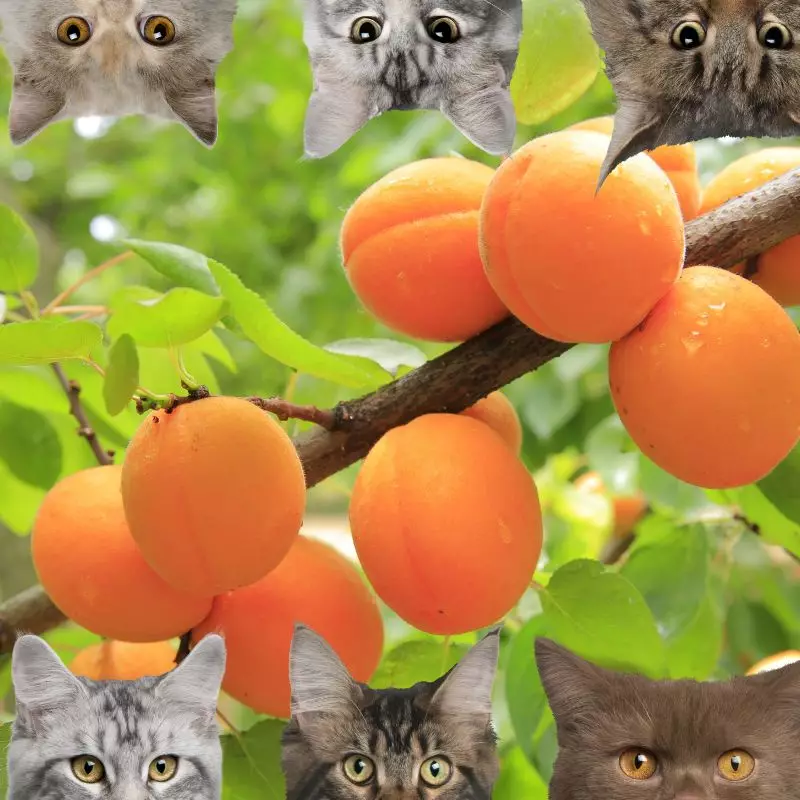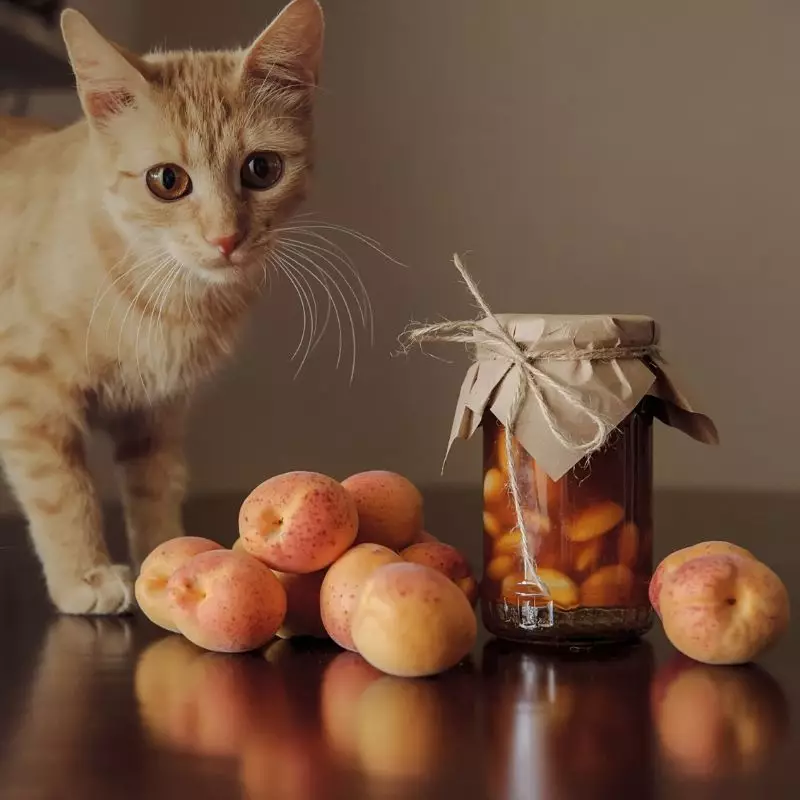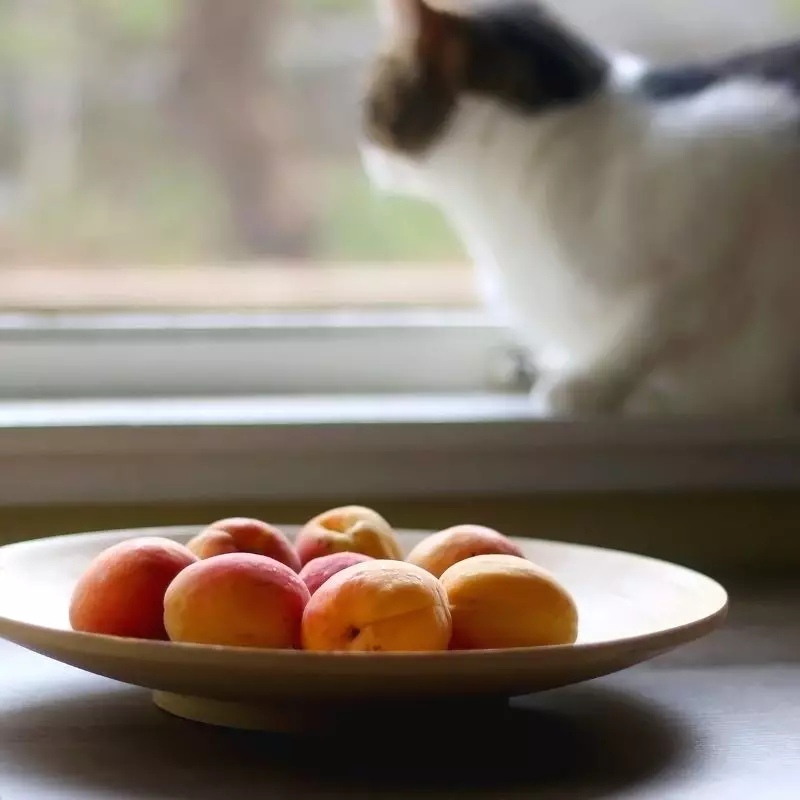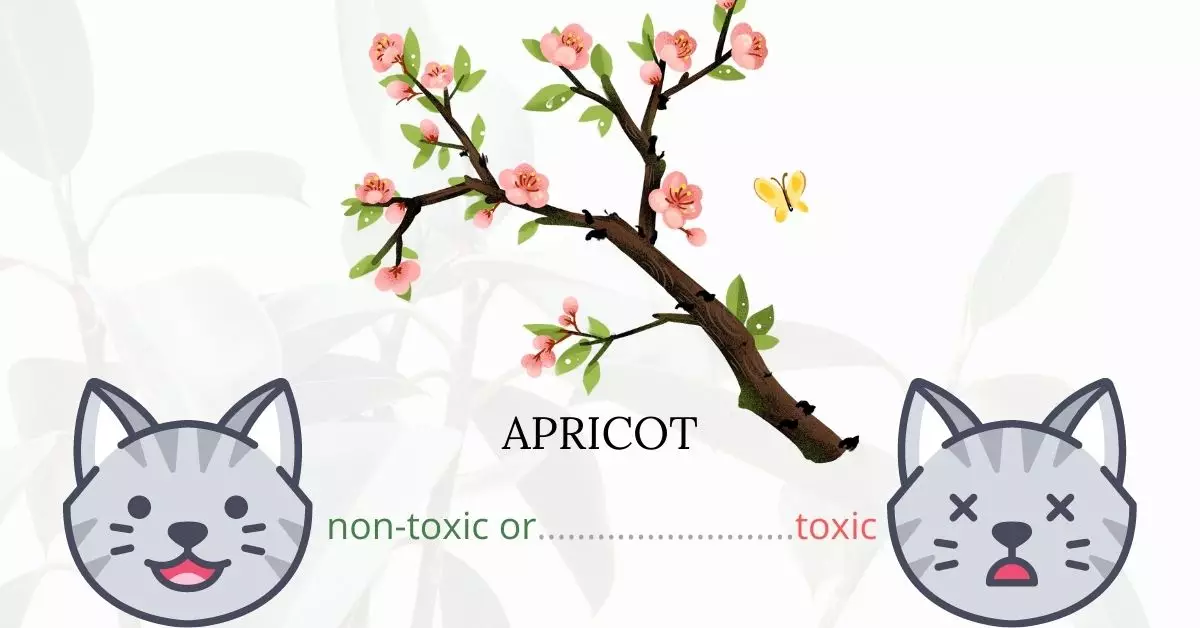Apricots, scientifically known as Prunus Armeniaca, are not only cherished by many for their vitamins and minerals but also pose a significant risk to cats. Specifically, parts of the apricot plant, including its stem, leaves, and seeds, contain cyanide, which can be toxic to cats. If ingested, these parts can lead to symptoms such as respiratory issues, vomiting, and a distinctive bright red coloration of the gums. Should you suspect your cat has consumed any part of the apricot plant, it’s crucial to seek immediate veterinary assistance.
This article is a collaborative effort with a team of experienced DVMs (doctors of veterinary medicine). Their invaluable insights ensure that we deliver accurate and current information regarding the potential dangers plants like apricots can pose to our feline friends. Additionally, our research extends to high-authority websites such as ASPCA and PetMD, reinforcing the accuracy and reliability of our findings on every plant discussed.
Clinical Signs of Apricot or Prunus Armenica Poisoning in Cats

When a cat comes into contact with, inhales the aroma of, or ingests parts of the apricot plant, particularly those containing cyanide, it may exhibit various clinical signs due to the toxic effects of the compound. Cyanide acts by impeding the cells’ ability to absorb and utilize oxygen, essentially suffocating them from the inside. This disruption can lead to the following symptoms:
- Dilated pupils: As the body’s response to reduced oxygen levels, the cat’s pupils may expand, trying to take in more light and improve visibility during this distressed state.
- Breathing problems: Cyanide prevents cells from efficiently using oxygen. In response, the cat might struggle to breathe as its body attempts to compensate for the decreased oxygen availability.
- Excessive panting: This can be a result of the body’s attempt to expel the toxin and increase the intake of oxygen in compensation for what is being blocked by the cyanide.
- Vomiting: The body may try to expel ingested toxins through vomiting. Additionally, nausea can be a direct result of the body’s response to cyanide poisoning.
- Bright red colored gums: Cyanide causes blood to become less efficient at releasing oxygen into tissues. This results in the blood retaining its oxygen, which can cause the gums to appear unusually bright red.
Should your cat display any of the symptoms above after coming into contact with apricot or its parts, it’s imperative to consult a veterinarian immediately.
First Aid and Treatment of Apricot or Prunus Armeniaca Poisoning in Cats

In most cases of apricot poisoning, the veterinarian may administer amyl nitrate nasally. The vet usually gives sodium nitrite and sodium thiosulfate to treat cyanide intoxication. The common side effects of this treatment are vomiting and low blood pressure thus, the veterinarian needs to closely monitor your cat. An additional dose of sodium nitrite may be also given to your cat to remove any cyanide residue from his or her system.
Recovery from Apricot or Prunus Armeniaca Poisoning in Cats

Keeping your cat calm and comfortable at home is important for his or her recovery. Discuss with the veterinarian what foods should be given to your cat. Make sure to give a lot of fluids to continue washing out your cat’s stomach.
Prevention of Apricot or Prunus Armeniaca Poisoning in Cats
Cats are naturally curious and wanderers so exposure to toxic plants and substances is most likely to happen. If there are apricot trees in your neighborhood and surrounding areas, it is best for your cat to stay indoors. Keep them busy inside their playpens or cat houses. Try building fences and placing safety nets around your home.
If you love plants but have cats at home, check out these lists:





